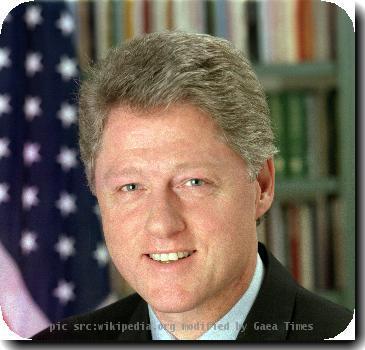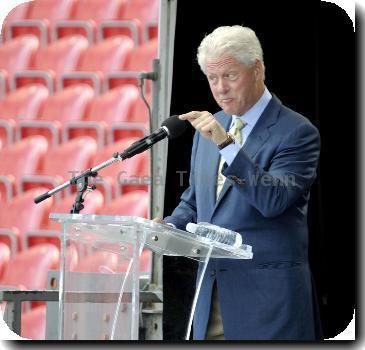Late ex-Congressman Rostenkowski had lamented that his legacy would be tainted by prison term
By Don Babwin, APThursday, August 12, 2010
Rostenkowski lamented how legacy would be tainted
CHICAGO — With rumpled suits and gruff, growling voice, Dan Rostenkowski quietly wielded enormous power on Capitol Hill for more than 30 years, becoming one of the most powerful lawmakers of his time — and a potent symbol of Washington’s excesses after he pleaded guilty to corruption charges.
When he died Wednesday of lung cancer at age 82, those who knew him recalled a meat-and potatoes politician from an era that no longer exists, where leaders crossed party lines to cut deals and seek consensus, and where a young man from Chicago’s northwest side could grow up to shape the national agenda as head of a congressional committee.
“He was the go-to guy for (Chicago) mayors,” former Secretary of Commerce William Daley said, citing his father, the late Richard J. Daley, and his brother, current Mayor Richard M. Daley. “You didn’t go to the senators. You went to Danny.”
In the years after his conviction on corruption charges, Rostenkowski lamented that his legacy always would be tainted by spending nearly 1½ years in federal prison.
“I know that my obituary will say, ‘Dan Rostenkowski, felon,’ and it is something that I have to live with,’” he said in a 1998 broadcast interview with Robert Novak and Mark Shields.
In Rostenkowski’s 18 terms in Congress and his time as chairman of the House Ways and Means Committee, much of the legislation that emerged from Washington carried his fingerprints. He was credited with leading the 1983 effort to rescue Social Security from insolvency and pushing through a sweeping 1986 overhaul of the nation’s tax system.
Back home, where he emerged from the Chicago Democratic Machine, Rostenkowski brought in millions of federal dollars for public works projects, including improvements to the Kennedy Expressway, the transformation of Navy Pier on Chicago’s downtown lakefront into a recreational area, and the construction of a train line to the city’s biggest airport.
“Chicago was his heart and soul when it came to his political career,” said Democratic Sen. Dick Durbin of Illinois. “He spent his time as chairman of one of the most prestigious committees in Washington, focusing on tax code for sure, but never forgetting where he came from.”
Rostenkowski was at once a tough politician who called Chicago politics a “blood sport,” and a master at the disappearing art of political compromise. So even as he fought battles on behalf of Chicago mayors back home, the staunch Democrat worked closely with President Ronald Reagan and President George H.W. Bush in Washington.
“He was a big D Democrat, but always able to work across the aisle to get things done,” said U.S. Rep. Jan Schakowsky of Illinois.
As chairman, Rostenkowski opposed protectionist trade legislation and played a key role in pushing through the North American Free Trade Agreement, which lowered trade barriers between the U.S., Canada and Mexico.
Rostenkowski won praise for driving the 1986 tax overhaul legislation. In a dramatic gesture designed to focus attention on the issue, he went on national television and urged viewers to write to him with their own views on how the nation’s tax laws could be improved.
He told them that if they had trouble spelling his name, all they had to do was “write Rosty” in Washington.
The bill Reagan finally signed into law eliminated numerous loopholes.
Former House Republican leader Robert Michel of Peoria, Ill., said he and Rostenkowski differed on all sorts of issues. That didn’t stop the two men from being close enough friends to drive on trips from Washington to Chicago and back.
“In those days, let’s face it, there was a different chemistry than there is today. We were opposite parties but … not enemies,” Michel said.
Rostenkowski’s career started to unravel in 1992, when a Washington grand jury charged him with 17 counts of misusing government and campaign funds.
The scandal forced him to step down as chairman and led to his 1994 defeat by Republican unknown Michael Patrick Flanagan, who became the first GOP congressman from Chicago in 35 years.
In the end, Rostenkowski pleaded guilty to two counts of mail fraud. He admitted in his plea agreement that he had converted office funds to his own use for gifts such as Lenox china and armchairs.
He admitted hiring people on his congressional payroll who did little or no official work — but took care of his lawn, took photographs at political events and family weddings, helped his family’s business and supervised the renovation of his house.
Rostenkowski served 17 months in prison, mainly at the federal government’s correctional center at Oxford, Wis. After his release, he spoke to a prison reform group and joked about “my Oxford education.”
“Congress changed in a sense, and he didn’t,” Former House Speaker Dennis Hastert, an Illinois Republican, said of Rostenkowski’s misuse of office funds. “That was probably his biggest weakness.”
Rostenkowski’s ouster was part of a Republican sweep that returned the GOP to power in both houses of Congress for the first time since the 1950s. (Flanagan served just one term before being ousted by then-Democratic state Rep. Rod Blagojevich, who later became governor — and was ousted from office in his own scandal in January 2009.)
In 2000, President Bill Clinton pardoned Rostenkowski. Two prominent Republicans, former President Gerald R. Ford and former House Minority Leader Robert H. Michel, were among those urging the pardon.
Daniel David Rostenkowski was born Jan. 2, 1928, into one of Chicago’s leading Polish-American political families. His father was an alderman.
Rostenkowski was educated at St. John’s Academy, a Wisconsin military school, and Loyola University in Chicago. He served in the infantry in Korea from 1946 to 1948. He was a state representative and later a state senator before his election to the U.S. House in 1958.
Although Rostenkowski acknowledged the blemish of his corruption conviction, he hoped his legislative achievements would endure.
“I think the epitaph I’d like to see, even on my gravestone, would be, ‘He wrote good law,’” Rostenkowski said. “That it was fair.”
Associated Press writers Christopher Wills and Mike Robinson contributed to this report.
Tags: Bill Clinton, Chicago, Dan rostenkowski, Embezzlement, Government Regulations, Illinois, Industry Regulation, International Trade, North America, Obituaries, Political Corruption, Political Issues, Political Scandals, United States

